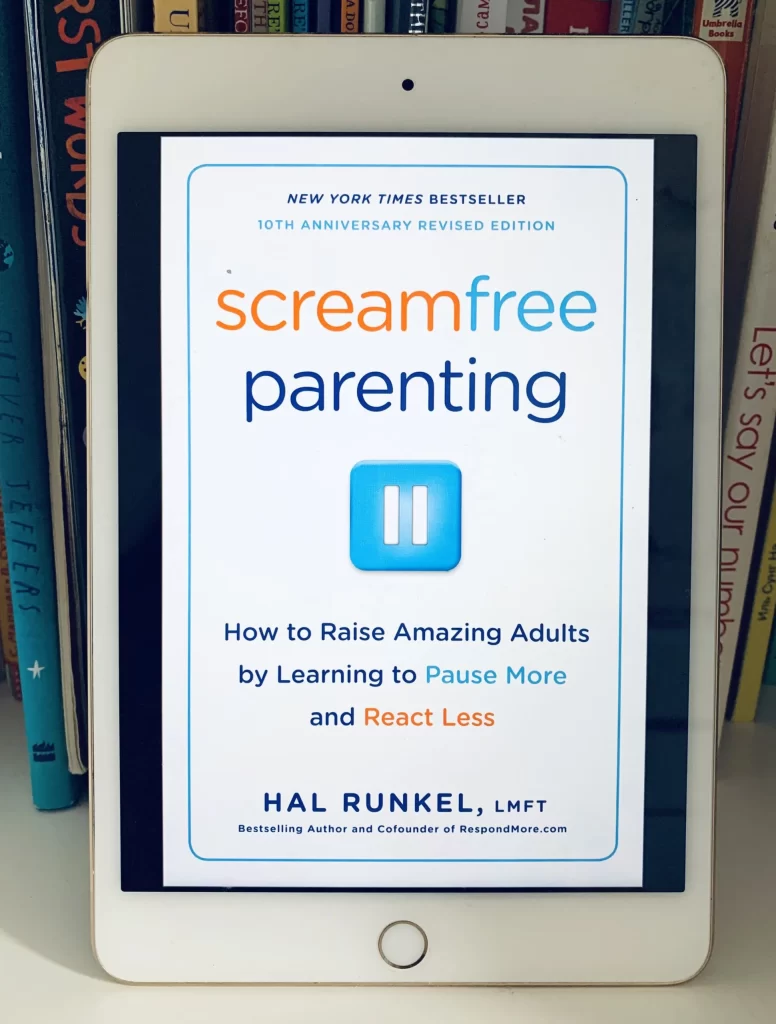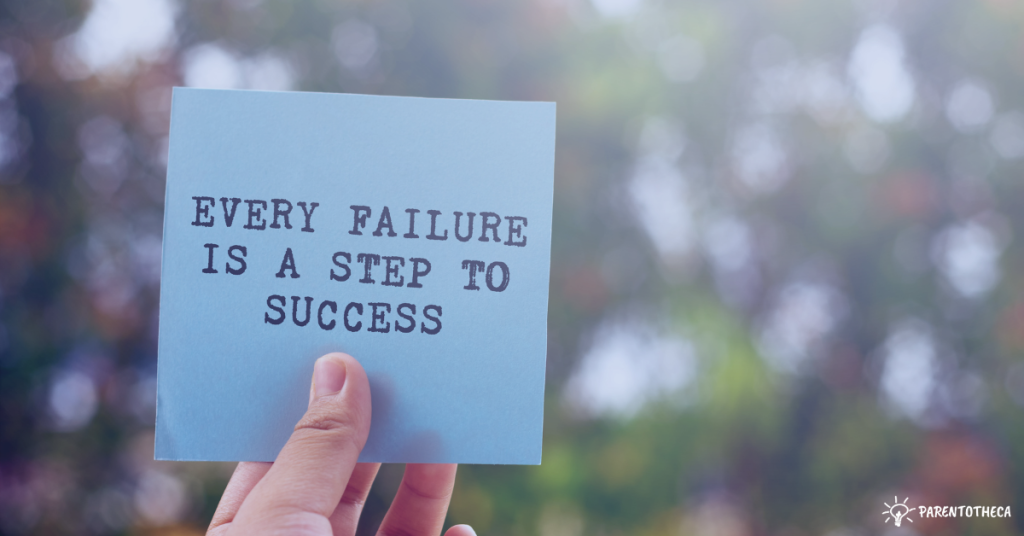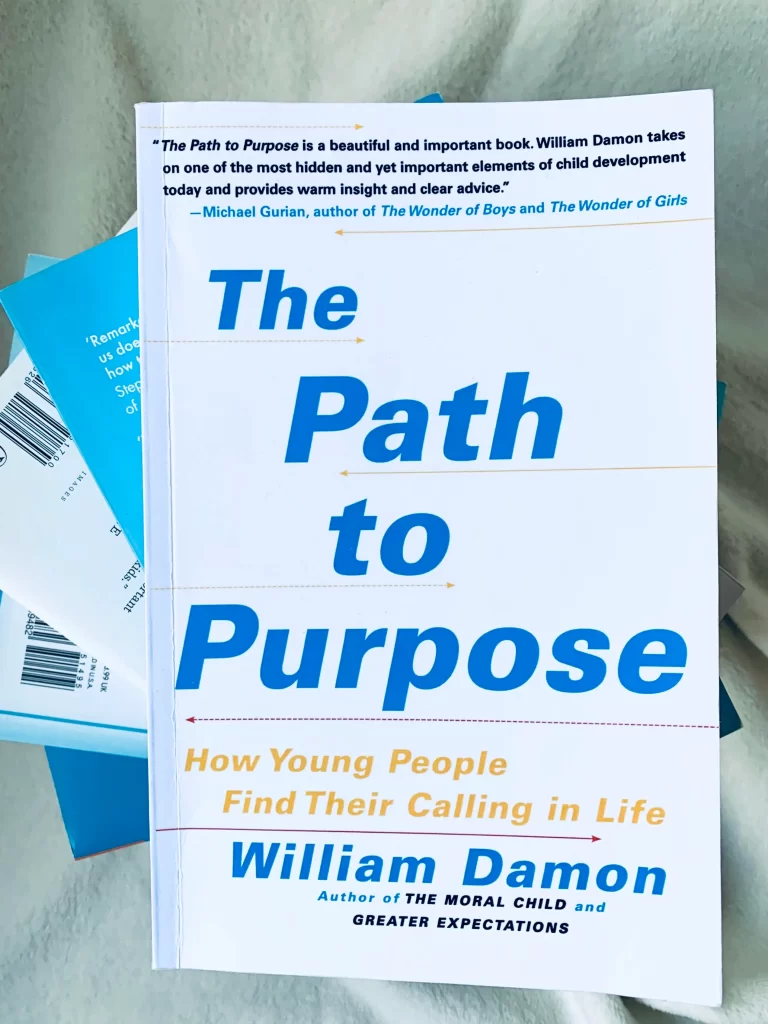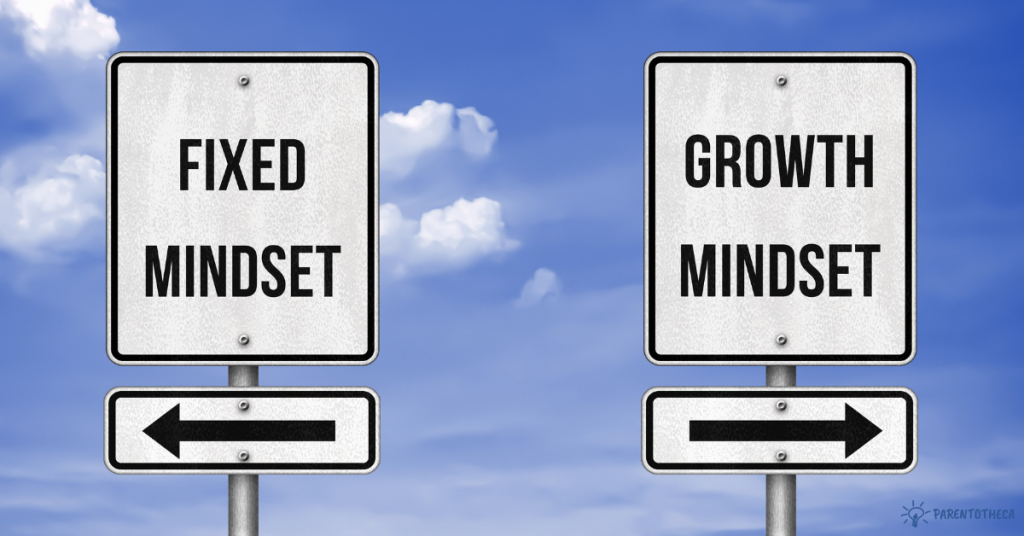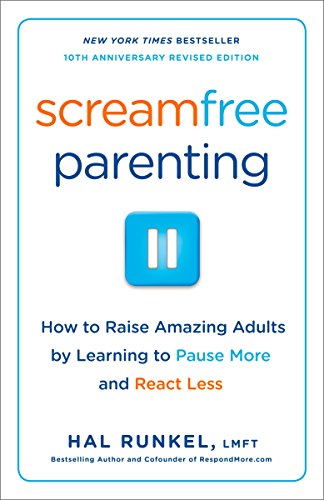 Screamfree Parenting. Book summary
Screamfree Parenting. Book summary
How to Raise Amazing Adults by Learning to Pause More and React Less
Hal Runkel
Harmony; Reprint edition (4 Sept. 2007)
About the author
Hal Runkel is a licensed marriage and family therapist, relationship coach, and international speaker. He is the founder and president of ScreamFree Living, Inc. dedicated to calming the world one relationship at a time. Hal’s principles have already helped thousands of families revolutionize their relationships. He lives with his wife, Jenny, and their two children just outside Atlanta, Georgia.
About the book
ScreamFree Parenting is not about how to discipline your kids without yelling. It’s about learning to calm your emotional reactions and learning to focus on your own behaviour more than your children’s behaviour… for their benefit. Hal Runkel shares excellent ideas on how to create calm and connected relationships with your children and how to raise self-directed ADULTS. Great book for every parent!
Key insights:
What the book is about
“My goal for this book is simple: to help you and your whole family lead a calmer, happier life together. I firmly believe that by incorporating into your daily life the principles outlined here, you will begin to enjoy the types of parent-child relationships you have always craved. These are relationships full of joy, cooperation, harmony, and most of all, mutual respect. Peace in your family is not as far off as you might think.”
Parenting is not easy. Especially in the 21st century, when all the parents are facing a tough challenge: to create a healthy family environment filled with mutual respect, cooperation and love in a culture that celebrates immediacy, entitlement, and distraction. We feel the pressure to produce perfect kids and sacrifice ourselves to them. We feel more stressed and anxious about our children than before. So we react emotionally to their behaviour and choices.
And here comes Hal Runkel with the ScreamFree approach helping us calm down and build peaceful and connected relationships with our children. The book is brilliant and packed with great ideas. Let’s jump straight into our favourite ideas.
Screamfree parenting
“ScreamFree™ \’skrēm’frē\: learning to pause so you can respond more and react less; taking hold of your own emotional responses no matter how anyone else chooses to behave; learning to focus on yourself and take care of yourself for the world’s benefit.”
When it comes to parenting, there is one issue that pretty much everyone faces sooner or later – emotional reactions to our children’s behaviour (e.g. screaming).
We worry about how our kids will turn out in life, so we start worrying about their behaviour and their choices and want to get more control over it. Our anxiety kicks in, and we get emotionally reactive. And this emotional reactivity may potentially damage our relationships in the family.
“Whenever we give in to our anxious reactivity, we help create the very outcome we’re hoping to avoid. Reactivity doesn’t just make things worse; it actually helps produce the results we’re reacting against.”
Hal says there is only one thing we can control: our OWN behaviour. His main idea is that if parents stop trying to control children and start focusing on themselves instead, the whole parenting thing will become easier. Firstly, parents will be able to keep their cool when things get hot. Secondly, this will help them to mature themselves. And last but not least, they will be able to lead their kids toward self-direction, which is super important in adulthood. And that’s what ScreamFree parenting is about:
1) focus on yourself; 2) calm yourself down; 3) grow yourself up.
Simply brilliant.
Parenting is not about kids; it’s about parents. And our job as parents is to manage our own anxiety. Otherwise, we cannot lead.
The most damaging lie about parenting
“The reason we feel so overwhelmed now, however, is because most of us are attempting to follow an impossible mindset. And this mindset is fuelled by a dangerous lie, a lie so embedded in our social consciousness that it sounds crazy to question it. Here it is, the most damaging lie about parenting: We are responsible for our children.”
Hal makes a bold statement: we are responsible TO our children, but not FOR our children, as most parents think.
When parents adopt a “responsible for” mindset, they get super anxious trying to “program” their children to make the “right” decisions. And the whole parenting process may turn into obedience training, where parents feel big and in charge, and children feel small and incompetent (and that’s how learned helplessness develops, by the way). When parents take responsibility for their children, it is very unlikely that they will take responsibility for their own lives once they become adults.
When you think of it, the “responsible for” mindset is the starting point for helicopter parenting (check out our notes on “How to raise an adult” by Julie Lythcott-Haims).
So here is a mantra which we all should repeat every day:
“I am not responsible for my child and the choices she makes; I am responsible to my child for how I behave, regardless of her choices.”
We have an influence but no control over our children. Period. We are responsible not FOR them, but TO them. Our job is not to manage our children’s behaviour but to teach them to manage their own.
If you’re not under control, then you can’t be in charge
“We’ve been blaming others for our own actions for a long, long time. However, your emotional responses are up to you. You always have a choice. Taking responsibility for your own actions is a sign of maturity. Owning up to your mistakes without blaming your circumstances, other people, or your childhood—this is when you know you’re a grown-up. But that’s only one step on the path to bringing yourself under control.
Learning to be under control means taking responsibility for your decisions before, during, and after you make them. I am not saying you don’t ever make mistakes; this isn’t about trying to be flawless. This is recognizing that no one, not even your kids, can make you feel, think, or do anything. Period. Your children cannot push you over the edge, press your magic buttons, or bring you to the brink. They are simply not that powerful.”
That is such a powerful idea. Get this: our kids can’t MAKE us mad. We are the ones in control of our emotional reactions and behaviour. Only WE have a choice to stay calm or feel (and act) mad. And we are fully responsible for our reactions.
When we say, “You made me mad!” we push control (together with responsibility for our behaviour) to our child. And when we are not in control of our actions, we can’t be in charge – we can’t lead. And being a leader, being responsible TO our children is our main job:
“To truly be in charge means having the power to create lasting and continued growth, not just exerting power or demanding obedience. It means controlling yourself no matter what, so you can better influence your children to make good decisions. I’ll say that again: To be in charge as a parent means controlling yourself so you can influence your kids. This makes for a radical shift, a shift away from controlling your kids’ behavior. Your goal is not to control. Your goal is to influence. Remember, you are not responsible for your children’s responses. You want to continually hold up and respect their ability to make choices, even choices you disagree with. Unless they’re free to make their own choices, they can’t learn the connection between choices and consequences.”
Brilliant. To be in charge, we need to bring ourselves under control. And it is only possible when we are willing to grow.
Raising adults – parenting with the end in mind
“Tree farmers aren’t raising saplings, and wheat farmers aren’t raising kernels. Not even goat farmers are raising kids! Well, we parents are not raising kids either. If you have a ten-year-old boy and an eight-year-old girl living in your house, you’re not raising kids; you already have kids. What you’re raising, hopefully, are adults.”
That’s a big idea: We are not raising KIDS. We are raising ADULTS. And when we approach parenting from this perspective, it becomes a mutual growing up process.
In the book, Hal refers to the “Begin With the End in Mind” exercise from Stephen Covey’s bestseller “The Seven Habits of Highly Effective People”. He offers us to visualise the type of adult we want each of our children to become and the type of relationship we would like to enjoy with each of them, so we can see the kind of growth we would like for ourselves. Check out the book for the exercise – it’s a truly powerful tool!
Hal also shares a great view on the ultimate goal of parenting: “The ultimate goal of parenting is to launch our children into an adulthood where they are self-directed, decisive, and responsible women and men.”
What does it mean to be self-directed?
“…here are the attributes of a self-directed adult:
- He knows and pursues what he wants in life.
- She gladly seeks counsel from others but ultimately makes up her own mind.
- He demonstrates integrity, a consistency of his beliefs, desires, words, and actions.
- She holds people accountable for their actions (including her parents) but does not blame others for her own problems.
- He does not let others blame him for their problems.
- She gladly and quickly takes responsibility for her decisions.
- He welcomes criticism as feedback but does not automatically accept it as truth.
- She takes care of herself in order to be available to others without needing them to take care of her.”
That reminds of Nathaniel Branden’s ideas in “The Six Pillars of Self-Esteem” (check out the notes) ☺
If we want to raise a mature adult, we need to set the example and open our eyes to our own maturity so we can lead our kids towards theirs. We have to become self-directed adults by ourselves: we need to learn how to create space for our kids to make decisions and calm our anxiety about those decisions.
So parenting is all about discovering our strengths and identifying where we’ve got plenty of room to grow.
“Every interaction with our children, every tiny conversation and every huge argument, carries the potential for growth.”
So, a question for you – how self-directed is each of your children now? How can you encourage their growth towards self-direction?
Give children space to flourish
“…each of us has a kingdom we can call our own. In that space, we have the freedom to explore, to discover possibilities and potential, to make mistakes and learn from them. In that space, we can be comfortable and learn to struggle through our discomfort. We don’t have to put on a mask or pretend. We can be ourselves with no fear or shame.”
The only way to raise self-directed adults is to give them some space to explore, experiment, make their own decisions and mistakes. Great parenting is about granting your child their own kingdom, which includes physical space (their bodies, privacy while in the bathroom, a small corner or a whole room) and some emotional space. It is also about reducing our own anxiety about our children’s choices.
If we don’t let our children have this space, they will continue to live “borrowed lives” and will either grow into rebellious kids (trying to fight against everyone’s efforts to determine their life) or passive, robotic children. And they will be more likely to develop an anxious need to separate from us with drugs, premature sex, gangs and suicide.
Hal also shares 8 practical ways to create more space for children:
- Respect your child’s physical space and privacy
- Calm your anxiety about your child’s messy room
- Respect your child’s money choices
- Calm your anxiety by giving up your need to know how your child feels
- Give up your need to know “why”
- Let your child struggle
- Allow your child to disagree with you and learn to respect her argument
- Rarely look your child in the eye when talking with him
That reminds of Jesper Juul and his great idea that we need to take our kids and their needs seriously. In «Your Competent Child» (check out the notes), he also argues that our primary role as parents is to teach our children to take personal responsibility in three main areas: 1) Their senses (if they are cold or hot, which food they like and which not, what smells good and what’s not, etc.); 2) their feelings (e.g. love, frustration, friendship, pain, desire, etc.); 3) their needs (e.g. hunger, thirst, sleep, distance, etc.)
Question for you: what are your deepest fears about extending your child too much space?
Set freedom within limits
“Stability and structure are necessary components in a healthy home. […] We have a responsibility to our children to set a steady place for each of them in the family.”
Boundaries are both freeing and limiting. Children need limits to flourish. If we want to enjoy our parenting times with freedom and love, we need to take care of the “business side” of parenting: setting schedules and rules, enforcing consequences, establishing curfews and bedtimes, and providing the basics of food, clothing and shelter. Kids need to know that a family plane has a pilot.
Basically, setting freedom within limits is about bringing structure into our children’s lives, giving them clear choices, clear time limits on those choices, and clear consequences for this.
Hal also adds:
“Children have the very difficult task of asking for us to provide structure while striving to claim as much territory as possible. Parents have the very difficult task of setting limits on their children’s space while respecting their freedom within those limits. It’s tricky, sure, but parenting isn’t easy. It’s an opportunity for challenging growth.”
In the book Hal also explores different parenting styles and talks about authoritative (wise) parenting – again, that’s something we should all aim for 🙂
Let your children make mistakes
“The single greatest teaching and discipline strategy is a phenomenon embedded within the fabric of life itself. Simply put it: All of our choices have consequences. Every single one of them. It is a bedrock truth in life.”
One of the most important qualities of a leader (and a self-directed adult) is the ability to accept responsibility for their actions, regardless of the factors leading up to those actions.
“You want your children to grow up and accept the consequences for their actions? Then all you have to do is welcome those consequences into your home.”
Here are two main conditions, though: 1) we have to learn to accept those consequences for ourselves (it’s all starts with parents, remember?); 2) we have to learn to watch our children suffer through their own consequences (basically, we have to learn how to calm ourselves down while watching our children make poor choices).
The whole idea is that by allowing our kids to be exposed to the small consequences of their small infractions, we create “a training field” for them so they’ll be ready for adult life. That’s how we help our children grow into strong adults:
“When you choose to welcome consequences, you become a life guide for your children, walking alongside them as they struggle and suffer.”
That is also about nurturing the growth mindset and teaching kids that mistakes and failures are necessary for growth.
The power of consistency
“Remember that being consistent will maintain stability in your world. Being consistent makes it easier to remain ScreamFree. And in turn, remaining ScremFree makes it easier to remain consistent.”
Consistency…all parents know that they need to be consistent with kids but rarely understand how to put it into practice. Hal shares with us four principles to help guide our way:
- Don’t ever set a consequence that is tougher for you to enforce than it is for them to endure.
- There are no shortcuts to setting or enforcing consequences.
- Choose only those consequences that you are willing to enforce.
- Choose only consequences you are willing to endure yourself.
Question for you: When are you most prone to make threats you don’t keep? What effects has your inconsistency had on your parent-child relationships?
Action steps for you:
- Take a moment and do the “Begin With the End in Mind” exercise – visualise the type of adult you want each of your children to become and the type of relationship you would like to enjoy with each of them. What type of parent do you need to become?
- Give freedom within limits: work on creating some more space for your child (expand gradually)
- Think about what, in your opinion, are your responsibilities TO each of your children?
Quotes from the book:






